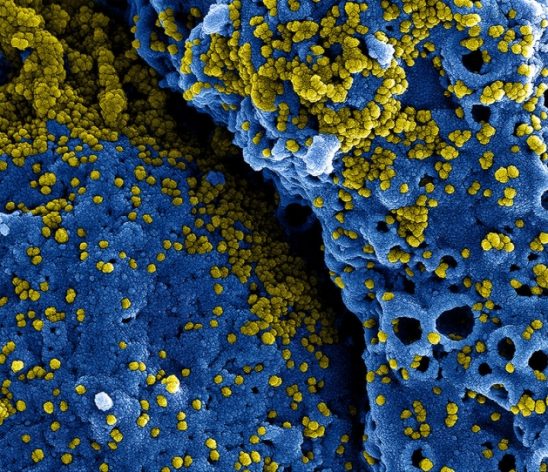WHO Declares Coronavirus a Public Health Emergency, Highlights Need to Support Countries ‘Weaker Health Systems’

UNITED NATIONS, Jan 31 (IPS) - Weeks into widespread panic about the "Coronavirus" that has so far killed at least 170 people in China, the World Health Organisation (WHO) on Thursday declared it a public health emergency. As of Friday, the disease had spread to all the regions in Mainland China, with more than 7,500 cases in the country alone, according to the BBC.
In a statement, WHO Director-General Dr. Tedros Adhanom Ghebreyesus said owing to the large number of cases, the pace at which it is spreading, and for not knowing what this damage could do, he was declaring it "a public health emergency of international concern over the global outbreak of novel coronavirus".
The virus has so far spread to countries such as South Korea, and England with four countries reporting human-to-human transmission: Vietnam, Germany, Japan and the United States. A key message from Ghebreyesus was the concern regarding facilities in countries that have "weaker health systems".
He reiterated that it is not known the extent of the "damage" the virus could do if it spread to countries that don't have the capacity to address such viruses. It's unclear in what capacity WHO is working with these countries, and the organisation did not clarify when asked.
"We support all countries as they coordinate the efforts of multiple sectors of the government and partners – including bi- and multi-laterals, funds and foundations, civil society organisations and private sector – to attain their health objectives and support their national health policies and strategies," WHO said in a statement to IPS.
The health network operates in six regions around the world with 149 field offices.
Experts told IPS some of the main challenges for countries with "weaker health systems" include the laboratory access, staffing challenges, and bedding capacity.
There remains a grave challenge in diagnosing the Coronavirus, especially given the symptoms are very similar to the flu. Because pneumonia can be caused by a number of viruses, there are extra lab test required to diagnose a patient with the coronavirus, and not all countries are equipped with that.
Furthermore, it's difficult to gauge what kind of treatment each patient needs: a person with a "severe" case might require different treatment. Also, if a larger group of patients each require a bed for treatment that can take up to 20 days, not all hospitals may have that capacity.
Other concerns that experts worry about is how the virus is transmitted and how infected it is in a patient. In many places that fall under the category of "weaker health practices", the enforcing of Infection Prevention and Control (IPC), the set of regulations for medical staff to prevent the spread of infections, in itself can be a challenge.
Depending on how it's contained and how soon a vaccine is available to stop it, the virus could affect anywhere between 39,000 to 190,000 people in Wuhan province of China, according to a Nature report.
Meanwhile, other countries that have key relations with China -- such as those in Asia and Africa are turning away flights. Kenya Airways and RwandAir have suspended all flights from China.
When asked by IPS whether countries with identified cases are seeking out assistance from WHO, the organisation said, "WHO is working 24/7 with networks of scientists, clinicians, disease trackers, governments, supply chain experts and partners from the public and private sector to coordinate the new coronavirus response and support affected and non-affected countries in various capacities as well as providing help if needed."
© Inter Press Service (2020) — All Rights Reserved. Original source: Inter Press Service
Where next?
Browse related news topics:
Read the latest news stories:
- Trump, Democracy and the U.S. Constitution Friday, March 14, 2025
- Is UN in Danger of Losing its Battle for Gender Equality? Friday, March 14, 2025
- No food deliveries to Gaza as border closures continue Friday, March 14, 2025
- World News in Brief: Fresh fighting in eastern DR Congo, global trade update, elections in CAR, Pakistan train hijack Friday, March 14, 2025
- Reject bigotry and discrimination, UN chief says, urging everyone to combat Islamophobia Friday, March 14, 2025
- Iran protests: Human Rights Council probe condemns online, app-based repression Friday, March 14, 2025
- In Bangladesh, UN chief vows to prevent Rohingya suffering as aid cuts loom Friday, March 14, 2025
- Women and Girls in Afghanistan Bear the Brunt of the Country’s Crisis Thursday, March 13, 2025
- Activists Fear Kenya Forests Threatened Due to Government Development Thursday, March 13, 2025
- Trashing Jewish Values Risks Israel’s Survival as We Know It Thursday, March 13, 2025
Learn more about the related issues: